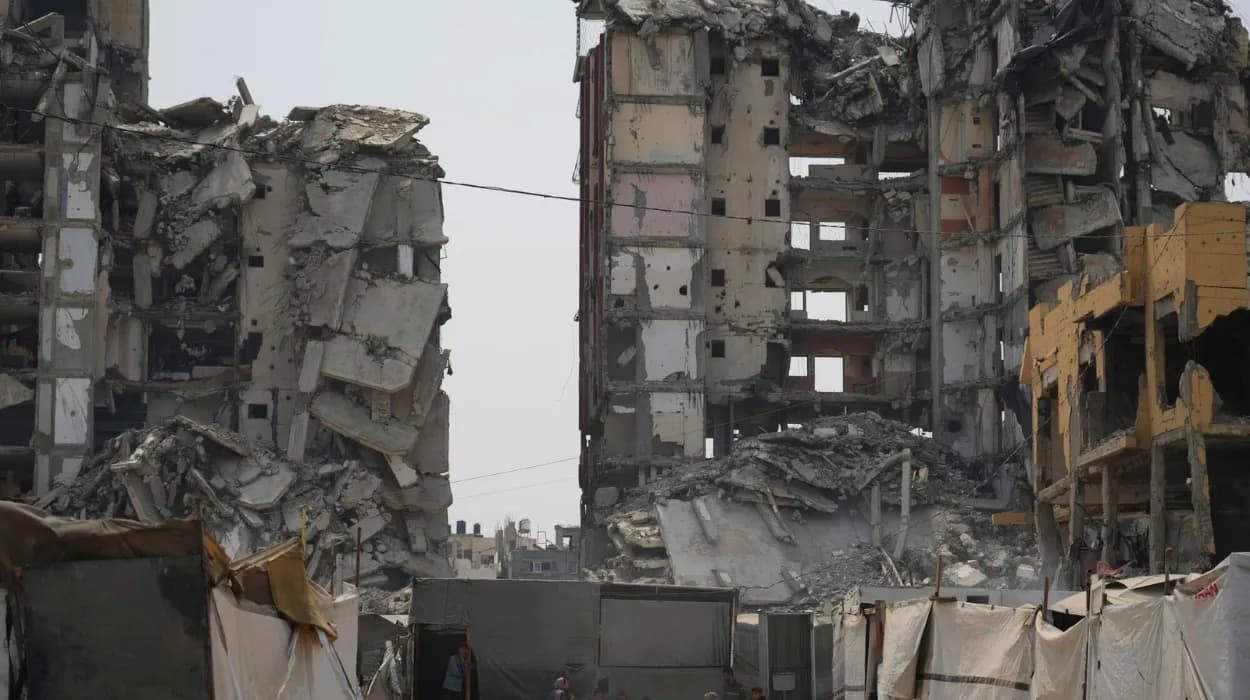Israeli Occupied forces have launched intensive airstrikes
on the Al Sabra suburb of Gaza amid escalating military operations aimed at
taking control of Gaza City. The offensive reflects a strategic push following
increased hostilities, with humanitarian concerns mounting.
Israeli Military Escalates Operations in Gaza
Israeli Occupied Forces (IDF) initiated a series of heavy
airstrikes targeting the Al Sabra suburb, a densely populated area in Gaza, as
part of a larger plan to extend military control over Gaza City. This
development marks a significant step in the ongoing conflict between Israel and
Hamas militants based in the Gaza Strip.
The bombing campaign follows days of heightened tensions and
conflict escalation, with Israeli officials stating that the military action is
a necessary response to continuous rocket attacks from Gaza directed into
Israeli territory. According to military sources, the strikes aim to dismantle
key militant infrastructure and command centres within the suburb, which has
been identified as a hub for Hamas activities.
Plans to Control Gaza City Gain Momentum
The Israeli government's strategic objective is reportedly
to restore security in Gaza City by eliminating militant strongholds. Senior
Israeli commanders have been quoted in military briefings as saying the
operation could involve ground forces, signalling a possible large-scale
invasion to dominate urban areas.
As tensions soar, Israeli Prime Minister has reiterated the
country's commitment to neutralise militant threats while stressing the
military's intention to minimise civilian casualties. However, humanitarian
agencies warn that the densely populated nature of the Al Sabra suburb elevates
the risk of significant civilian harm.
Humanitarian Concerns and International Reactions
The intensified bombing has led to growing international
concern over the humanitarian impact on Gaza’s civilian population. The United
Nations and various aid organisations have called for an immediate cessation of
hostilities to prevent worsening human suffering.
Amnesty International and Human Rights Watch issued
statements emphasising the need for all parties to adhere to international
humanitarian law, underscoring the dire consequences for civilians trapped in
conflict zones like Al Sabra. Evacuation efforts and aid delivery have been
severely hampered by the ongoing violence.
Background of the Conflict
This surge in military action comes amid a broader
escalation between Israel and Hamas, with periodic exchanges of rocket fire and
retaliatory airstrikes having marked the landscape of the Israeli-Palestinian
conflict in recent years.
The Al Sabra suburb has historically been a focal point
during clashes given its strategic location within Gaza City. Since the
conflict's intensification, control over such urban areas has become crucial to
both sides. Israeli forces have thus intensified efforts to take active control
of key parts of Gaza City to reduce militant operational capabilities.
Local and Regional Implications
Residents of Gaza report increasing fear and displacement as
the bombing intensifies, with many families fleeing to overcrowded shelters or
attempting to leave the city altogether. The humanitarian situation is
exacerbated by disruptions in electricity, water, and medical supplies.
Regionally, neighbouring countries have expressed increasing
concern over the conflict's potential to destabilise wider Middle East peace
efforts, calling for dialogue and restraint amid fears of broader regional
escalation.
